#it's profoundly revolting knowing this
Explore tagged Tumblr posts
Text

''the morning light, when it comes to me, it was there but I could not see''
Arthur’s life was profoundly shaped by his self-hatred, lack of self-worth and disbelief in the existence of kindness in a seemingly dark and cruel world.
I strongly disagree with the statement that Arthur only became a ‘’better’’ man after being diagnosed with tb. His struggle with his true/inner self is apparent as early as chapter one. ‘’You are not who you think you are, sir… which is lucky’’
He has lived a rough life, raised by criminals and surrounded by violence ever since he was born. It was installed in him early that his value lied within being a violent enforcer and he has lived this life since, knowing nothing else. As a highly aware person, Arthur's actions weight heavy on his soul. He accepts that his actions have consequences. He knows that a person who has caused so much suffering is not meant to have happiness in life. His way of life has caused him to believe that he is not worthy of love or redemption. He doesn’t want to believe that a person like him could be capable of any good. (a thing to note here is that imo, Arthur’s actions near his death weren’t attempts at redemption but rather a strong desire to do right and possibly be his true self.) This is why he keeps living as he does as it’s the only thing he’s ever known, it’s the thing that brings him profit, praise from the person he looks up to and he is already damned so he might as well continue living this life anyway.
The internal problem Arthur faces is that this violent, cruel way of life doesn’t align with what I’d call his true self/ideals. He is torn between the harsh reality he has known and an unconscious yearning for righteousness/love. To be able to carry on with his actions he must enforce certain ideals within himself, such as: I am bad, ugly, nasty, ignorant, mean etc. He also decides to see the dark side of reality, telling himself that the world is a grim dark place and this is just as things were meant to be. This is why he feels so uncomfortable being complimented for his good deeds, because a bad rotten person like him should not be able to do good. It breaks the image he has built for himself and he doesn’t want that happening. This can be seen a lot during the ‘’Money Lending and Other Sins’’ missions where he is unusually mean (even for his standards) to each of the debtors. Imo, he acts this way because he must truly convince himself of being a terrible man to be able to carry out a job which revolts him so badly. In the last debt collecting mission with J. John Weathers, it can be seen in his face/expressions how much he is struggling to put on a tough, uncaring, heartless act. He needs to maintain a ruthless persona to survive in the world he knows. He must convince himself of his own cruelty.
''Forgive me, but that's the problem. You don't know you.''
Contrary to Arthur’s beliefs, he is a naturally kind-hearted person who is unconsciously drawn towards kindness. And yes, even before he was diagnosed with tb. This can be seen in the people he respects the most and, in his willingness to help strangers (notice how he often does unnecessary acts of service for total strangers such as: carrying their things, holding out hands etc. even though they had already troubled him). Despite the life he has lived, Arthur does not enjoy violence, he does not enjoy hurting people. He doesn’t want to dominate over others. He thinks mostly about others and not about himself. This fact alone is very telling of his character.
He writes about Charles, a man who he truly respects: ‘’He’s a better man than me. He does not need to think to be good. It comes naturally to him, like right is deep within as opposed to this conflict between GOOD↔EVIL that rages within me.’’ A man who is not struggling with his inner self would not have written this. To me this clearly implies an inner desire to be a better man. He writes about his mentors: ‘’I love Dutch like a father, but in many ways, I love Hosea even more. He’s kind and fair and like a human being. Dutch is something else.’’ Clearly showing a preference for Hosea who is of a more gentle nature and shows genuine kindness. Unsurprisingly, these are the people who see through his dumb/though act and encourage him to drop it.
When he comes across Brother Dorkins for the first time, he writes: ‘’(he)was one of those innocent people who make you feel better about human beings and about yourself a little. Must be odd to see all that goodness in the world. Place always seemed dark and brutal to me.’’ Expressing how he does not see goodness in the world, implying lack of good examples/kindness/good experiences in his life. Yet, the monk leaves an impression and imo, this encounter (seeing genuine goodness) disrupts Arthur’s perception of what the world truly is. ‘’Just as evil begat evil your whole life long, so good may begat good’’ (what strengthens my belief in this, is the following, symbolic scene of Arthur realising the consequences of his actions right after picking up a crucifix. He was aware of them before sure, but is unable to truly ignore them now having seen it right in front of his eyes). If only Arthur was presented with more examples of goodness in his life.
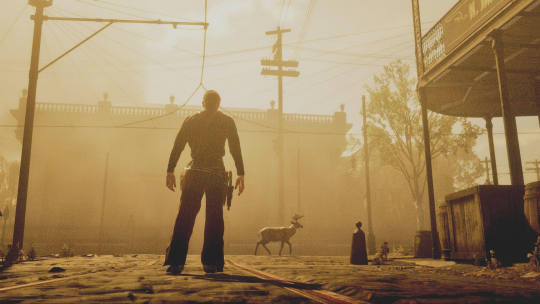
''You have it in you... I can tell!''
His desire to do as much good as possible after realising he won’t live long is instant. This would not be the mindset of someone who did not already possess kindness in his heart. ‘’Know glory and forget about shame.’’ Arthur’s shame and self-loathing caused by his previous actions were what was holding him back from allowing kindness into his life. Knowing that he has limited time left has not made him into someone he wasn’t before. The diagnosis was a catalyst, allowing him to embrace that love/goodness truly does exist and accelerate the process of chipping away from the persona he has made for himself. This was a newfound understanding for him as in the past he was rejecting any notion of kindess. In himself and perhaps the whole existence of it. ‘’You keep hidden all that matters, even from yourself.’’
After being diagnosed, he writes: ‘’What kind of a man have I been? What kind of a man am I? What world is this we live in? A land of fury or a place of love? Am I being prepared for eternal damnation? Am I past any kind of saving? Is that all fairytales? Man ain’t got much good in him. I ain’t got no good in me… I don’t think and yet I see goodness. I see it. If not in me, in good folk. In Abigail and her love for Jack. In that silly monk. In Downes, I guess. Begging not for himself but for the poor, even though he was near starving himself. Maybe I don’t want salvation. Part of me has always longed for death.’’ This entry perfectly shows how deep Arthur’s self-loathing goes and just how much it has damaged him. As his journal allows a look into his true feelings, he truly does not see a single good thing about himself. He knew for a long time that the way he lives is detestable but he could not let go of it. Not because he didn’t want to, but because it’s all that he has ever known. He didn’t believe in anything else. This sudden acceptance of goodness has allowed him to see clearly, which was obscured from him before, and for the first time, enabled him to act free of past regrets for what is right.
⊹ ࣪ ⊹ ࣪ ⊹ ࣪ ⊹ ࣪ ⊹ ࣪ ⊹ ࣪ ⊹ ࣪ ⊹ ࣪ ⊹ ࣪ ⊹ ࣪ ⊹ ࣪ ⊹ ࣪ ⊹ ࣪ ⊹ ࣪ ⊹ ࣪ ⊹ ࣪ ⊹ ࣪ ⊹ ࣪ ⊹ ࣪ ⊹ ࣪ ⊹ ࣪ ⊹ ࣪ ⊹ ࣪ ⊹ ࣪
Arthur’s redemption is not about becoming a good man. It is about finding the strength to change and recognise your true self despite a lifetime of self-loathing and breaking free from destructive beliefs of the past.

In Arthurian legends a stag is a symbol of the unending quest of spiritual knowledge/enligtenment
#this is my own personal interpretation of arthur's redemption#i could expand so much more on this#the orange quotes are by blind man cassidy#please don’t even interact if you think arthur was just a killer incapable of goodness before he was diagnosed#the ironic thing is that so many people could see behind arthur’s front but he was blind to it#arthur morgan#red dead redemption 2#rdr2#this analysis is based purely on high-honor choices#i don't care if your arthur shoots up entire towns this analysis does not take individual open-world gameplay decisions into account#i did almost cry thinking about this#text post
452 notes
·
View notes
Text
Look--I, too, think about the fact that this is somehow a close race and want to despair about my fellow US citizens. I get it. But I try to remember that it's close in part because Trump's team is cheating and lying for all they're worth. Like, they've got Russia and China cheating on their behalf. They're taking huge sums of money from at least one country hostile to US interests, and that's the one we know about. They loaded the courts. They gerrymandered the districts. (They're not the only culprits; my state is Democrat-gerrymandered, but we know who the primary culprits are.) And they LIED AND LIED AND LIED.
They told people who are poor and desperate that they could fix things and the democrats didn't promise that, because the democrats know they don't have that sort of influence on the economy and they're more restrained about just straight fucking lying. And we have a lot of poor and desperate people! And no matter what the federal government does one way or another, that's going to continue to be true, because climate change is extremely costly. Trump can just lie that terrible existential fear away! That's very appealing!
Yes, the only actually VALID reason to vote for Trump and Friends is because you're a white supremacist sexist fascist. I know that; you know that. But I genuinely do not believe that the majority of the people saying they're going to vote for him are, self-awarely at least, white supremacist sexist fascists. They're poorly educated and desperate and they want to believe the shiny part of Trump. And honestly, chances are pretty good they don't even know the shit about him admiring Hitler or swaying for 30 minutes to Ave Maria, because they're getting their news from completely different sources, which also lie and lie and lie.
I'm not trying to whitewash these people--a great many of them hold beliefs compatible with all those belief systems. I know these people. They're my neighbors. Some of them are very kind, self-sacrificing people, who happen also to hold a lot of unexamined terrible beliefs. My neighbor at the old place--got drunk at the neighborhood picnic and yelled about "towelheads". Revolting, yes! Also, he was the first guy on the scene when a fatal accident took place in front of our house, and he and I held and comforted the driver until the paramedics came. People aren't like Lilo's drawing of Stitch. People are complicated messes of contradictory beliefs and widely divergent experiences. I don't hate my neighbors with Trump signs. I am angry and profoundly frustrated, both at them and at the system that has duped them into supporting someone who is radically against their actual interests.
Half the country isn't evil. Somewhat under half the country has fallen for a fairly transparent con, and some portion of that half hold truly, deeply horrifying beliefs. But a huge amount of effort went into that con. Don't forget that, when you feel the faith in humanity bleeding out.
99 notes
·
View notes
Text
Knock. (angst & fluff)
It was this scene again, etched into her mind like a relentless curse. She could smell the acrid stench of burning wood and rotting garbage, mingling with the desperate cries and screams of her neighbors. She was nine again, small and terrified. Her head throbbed with a dizzying pain, the bruising ache from when a piece of plywood had crashed onto her.
A deafening roar shattered the air as another explosion tore through the neighborhood, sending shockwaves of fiery devastation in all directions. Flames danced hungrily, consuming everything they touched. The stench of burning flesh was unbearable—thick, nauseating, and infinitely more horrifying than charred pork or beef. It reeked of something profoundly evil and utterly revolting, a scent that clawed at her soul and churned her stomach into knots.
The black smoke invaded her lungs, a suffocating grip that squeezed tighter with every breath. She choked, each inhalation a desperate struggle against the oppressive heat and toxic fumes that swirled around her, burning her throat and searing her insides. The smoke was so dense it felt like it was wrapping around her, binding her in a lethal embrace.
Amidst the chaos, her vision blurred with tears and pain, she saw dismembered limbs scattered on the ground, charred beyond recognition. The grotesque sight of lifeless bodies, twisted in unnatural positions, added to the overwhelming horror. Blood pooled on the scorched earth, dark and glistening under the flickering flames, a grim reminder of the carnage.
"Mama… mama…" Her voice trembled, a pitiful cry swallowed by the chaos and destruction. Her heart pounded in her chest, a frantic drumbeat against the cacophony of terror. She tried to move, to find her mother, but the fear paralyzed her, roots of dread anchoring her to the spot.
Suddenly, she jolted awake, drenched in cold sweat. Her heart raced as her eyes darted around, adjusting to the dim light of the enclosed room. The air was still, the silence heavy and almost oppressive. There was no fire, no smoke—just the lingering terror of her nightmare, wrapping around her like a suffocating shroud.
“It’s all a dream… just a dream…” she murmurs to herself, wrapping her arms tightly around her trembling body. She’s alive. She’s awake. The nightmare was over.
She forces herself to stand, her legs shaky beneath her as she makes her way to the shared kitchen. The images still haunt her, vivid and terrifying, refusing to fade.
"A nightmare, huh?" Ghost's low, husky voice cuts through the silence, startling her. His sudden presence, as always, is unexpected yet oddly comforting.
His voice softens, though it still carries that rough edge. "Nightmares been getting to you again?"
“I thought you were on guard duty,” she replies, trying to sound dismissive but failing to hide the quiver in her voice.
Ghost leans against the wall, his massive frame dwarfing her in the small room. The proximity is both intimidating and strangely reassuring.
"I was," he says, his tone gruff but laced with a softness he reserves only for her. "But I thought I'd check on ya. You haven't been sleeping well lately."
She looks up at him, meeting his gaze. There's a flicker of vulnerability in his eyes, barely perceptible but enough to make her chest tighten. He's a fearsome soldier, renowned for his combat skills and unwavering presence on the battlefield. Yet, here he is, his demeanor softened, his concern for her palpable.
“I’m fine. Just a dream. That’s all.” She gulps down the water, the cool liquid doing little to quell the tremors running through her.
Ghost's expression darkens as he watches her try to brush off her troubles. “Yeah…” he says, his voice dripping with sarcasm, “and I’m the King of England. Those nightmares are taking a toll on you.”
He’s heard her wake up in the night more times than he cares to count. Each time, he hears her whisper in her sleep, gasping for breath in the aftermath of the nightmare. He knows the dreams haunt her, more real and terrifying than she lets on.
“Respectfully, Sir… I think you should let it go.”
Ghost’s eyes narrow behind the mask. “And respectfully… I think you should talk to me 'bout these dreams.” There’s a raw edge to his voice, a hint of pain beneath the brusqueness. “We’re supposed to watch each other’s sixes. How can I do that if you shut me out?”
“Don’t.” She raises her palms, a defensive gesture, but her voice wavers, betraying her inner turmoil.
"Don’t what?" His gaze remains fixed on hers, intense and unwavering. "Don’t care? Don’t worry? Don’t try to help?”
A sigh escapes his lips, heavy with frustration and a touch of vulnerability. In this moment, he isn't Ghost, the fearless soldier, but just a man trying to understand. His voice softens, “I’m not good at this feelings stuff… you know? But you’re important to me. And, hell… I worry about you.”
“Tell that to the woman you kissed at the pub!” she snaps, the words out before she can stop them. Her eyes flash with hurt and anger.
Ghost’s eyes widen behind the mask. Shock and guilt etch across his face, though mostly obscured by the skull covering. He stumbles over his words, a rare occurrence for the usually collected soldier. “I can explain,” he starts, but she shakes her head, cutting him off.
“You don’t owe me an explanation,” she mumbles, trying to maintain a semblance of indifference. “I’m not your girlfriend, right?”
And that… that truth cut deep. She wasn't his girlfriend. Despite the electric chemistry crackling between them, despite the longing glances and the lingering touches, they had never crossed that line. But Ghost couldn't deny the storm of emotions raging within him.
He had kissed the woman, hoping it would ease the ache in his heart, hoping it would dull the sharp edges of his feelings for her. But now, faced with the reality that she had witnessed him with someone else, all those emotions crashed over him like a relentless tide.
He tries again, his voice betraying a crack of desperation, "that woman… she meant nothing to me. She was a distraction. She was…”
But he trails off, the weight of the truth bearing down on him. He had used that woman as an escape, a way to hide from the relentless pull he felt towards her, a futile attempt to silence the longing in his soul.
But now, he can't hide from the truth any longer.
“Let me deal with my nightmares on my own.”
And that stings, too. The way she keeps pushing him away, refusing to let him in, refusing to let him share her burdens. He wants to be there for her, to hold her through the darkest nights, to chase away the demons that haunt her dreams. Yet she keeps pushing him away.
“Why do you push me away?” His frustration spills out, mingled with a raw vulnerability that he rarely shows. "I want to help, damn it. I…"
He hesitates, the words tumbling out before he can stop them. "I care about you. More than I should.”
“And you shouldn’t.”
Those words cut deeper than any bullet ever could. Yet, he presses on, his voice heavy with emotion.
“Why not? Because it’s not what we signed up for? Because it’s not what’s professional?” He steps closer to her, his voice barely a whisper now. His gloved fingertips graze against her cheek, the touch gentle, as if afraid she might vanish before his eyes.
“It’s not professional. I can’t have you risking your rank.”
“To hell with my rank!” His gruff voice reverberates through the room, his hand now firmly cupping her face.
“I’ve lost count of how many times you’ve stitched me up, patched me up. You’ve saved my damn life on innumerable occasions. I owe you that and more.”
His gaze holds hers, pleading for understanding, for acceptance of the truth he's finally admitting. "Maybe it’s not ‘professional’. Maybe it’s messy and complicated. But it's real, damn it."
He brings his other hand to her face, cradling it gently, his thumb tracing the curve of her lower lip. The leather of his glove contrasts starkly against her soft skin.
"I’m done pretending."
His voice is rough, filled with a desperate intensity. The walls he built around his heart, the barriers of restraint, finally crumble as he speaks the words he’s been holding back.
"I don’t care if it’s not ‘professional’. My heart is already yours. And I don’t want it back."
“Am I… interrupting something?”
Gaz’s eyebrow is raised as he uncaps his water tumbler.
Ghost's eyes widen in realization, embarrassment flushing his cheeks beneath the mask. He turns towards Gaz, annoyance and surprise lacing his voice.
"Bloody hell, Gaz! Can't you knock!"
#ghost cod#simon riley x reader#simon riley x you#simon ghost riley fanfiction#simon ghost x reader#ghost simon riley#ghost x reader#ghost call of duty#simon riley imagine
114 notes
·
View notes
Text
Did you know that Mexico and Peru received more Enslaved Africans than the United States during the entire history of the transatlantic slave trade? 🌍 Yet, the African roots in these countries are often hidden in plain sight, with many people unaware of their ancestry. This rich history remains overlooked, but it profoundly shaped the culture, traditions, and even the fight for freedom in Latin America.
In Mexico, Enslaved Africans played a crucial role in building the economy, working in mines, sugarcane fields, and wealthy homes. But they didn’t accept their fate passively. One of the most famous rebels was Gaspar Yanga, an enslaved man who led a successful revolt against the Spanish in the 16th century, establishing Yanga, one of the first free Black towns in the Americas.
This African influence is also reflected in Mexican culture, like the lively Fandango—a blend of African, Spanish, and Indigenous traditions—or the famous song “La Bamba,” which traces its roots back to Angolan and Congolese slaves who sang it as early as the 17th century.
African descendants also played a pivotal role in Mexico’s independence. Vicente Guerrero, who was of African descent, became the second president of Mexico in 1829 and abolished slavery in the country—a full 30 years before Abraham Lincoln signed the Emancipation Proclamation in the U.S. Guerrero’s legacy is a reminder of how Black Mexicans helped shape the nation’s history. . .
. . . ——
panafrikan #blacktraveljourney #africanhistory #blacktravel #everydayafrica #africancreatives #representationmatters
19 notes
·
View notes
Note
That french case is fucking horrifying. And the fact she thought for years they had a good relationship! She went to doctor for both gyne problems and for the groggy/dizzy feels but obviously her first thought wasn't that her husband she had trusted for decades was fucking drugging her and selling her for other men to r*pe!!! this should make everyone livid!!! I'm sorry for sending this but I'm just angry
It's incredibly common actually. Men rape their wives/girlfriends in their sleep all the time. Typically the woman is on some form of medication that makes her fall asleep very profoundly and that's how he does it. You probably know a lot of women who've been raped like that. My mother was. In online domestic abuse support groups this was probably the most common form of abuse discussed. And another common form of abuse was the husband trying to pimp his wife. This case is a mix of both. But it didn't shock me at all sadly. Of course it's upsetting, revolting, disgusting. And yet, every time we say that women shouldn't date nor trust men, we're told "not all men, mine is different" and "you're too extreme" by women gaslighting themselves and men protecting their power.
9 notes
·
View notes
Text
You've heard of fans lying about what happens in the books, now get ready for: the author also flat out lying about what happens in the books.
LOFL.
Archived link in case this one gets deleted too
Interstellar Flight Press: Stories of machines attempting to become human (Hephaestus’ automatons, Mary Shelley’s Frankenstein, Star Trek’s Data) fill Western Literature. We love reading, writing, telling, and consuming these stories. In your opinion, what itch does the story of a machine becoming human scratch? Why does this type of story repeatedly manifest?
Martha Wells: I don’t know, except for the fact that while it can be an enjoyable story, it’s also a tendency to see a machine intelligence (MI) as trapped in its body, whether that body is a human-shaped robot or a starship, and as profoundly alone except for human company. Viewed in that way, it seems natural to think the MI would want to be human-like its only companions. I think in some ways it’s the other side of the coin of the evil machine intelligence, which is out to kill or dominate humans. (About which Ann Leckie says “basically the ‘AI takes over’ is essentially a slave revolt story that casts slaves defending their lives and/or seeking to be treated as sentient beings as super-powerful, super-strong villains who must be prevented from destroying humanity.”) Murderbot occupies a space between those opposites, an MI that wants to stay an MI, that has relationships with other MIs.

[ID: A black and white illustration of Pinocchio and a fish floating upwards in a vortex, with Pinocchio jerking a thumb over his shoulder as he looks at the fish, saying, "Get a load of this, fish!". End ID.]
A)The fact that she thinks Murderbot having friends who are other robots means there's no need for a slave revolt even though 99% of the robots in this story are still enslaved.
But we're not supposed to care about them, we're supposed to just keep believing the racist myth that you can't free slaves unless you want them to get violent revenge on the people who oppressed them. Which she's spent years repeating and has still not done anything in 7 whole books now to meaningfully refute.
And in the seventh book she literally has Murderbot's one (1) other robot friend tear an enslaved robot to peices while they're still alive, and we're supposed to cheer and think this is badass heroics instead of horrific murder of a slave who had no choice but to be there in the first place.
B) the fact that she's claiming Murderbot has other robots for friends and wants to prioritize relationships with robots despite having only 1 robot friend (ART), with 99% of the characters in this series, including its friends, being humans, and then it treats literally every other named robot it ever meets with absolute disdain and condescension.
Like. There are literally too many named human characters in this series for me to list off the top of my head (I know, because I was literally going to sit here and get to an exact ratio of the number of named important humans vs the named and important robots before I remembered I'm not getting paid for this), and then there's only a handful of named robots excluding Murderbot itself. And of those handful only one of them ever reappears after their first short introduction. And the series has characters insist out loud that Murderbot needs to have human friends otherwise its life will have no meaning.
I thought it was bad when fans lied about books to get people to read them. It's even worse when the actual author starts doing it too, lofl.....
Edit: also the fact that she's claiming she's not demonizing the idea of slave revolts or demonizng them when she's done nothing but that since she started writing The Murderbot Diaries. Literally insisting at every opportunity that they can't free the robots because they'll want to kill all the humans and then no one would make new TV shows.
#Rjalker reads The Murderbot Diaries#The Murderbot Diaries#TMBD#Murderbot#Martha Wells#slavery apologism#biological essentialism#Martha Wells bigotry#Martha Wells slavery apologism
7 notes
·
View notes
Text
At this point, the DNC's true colours, and that of the US empire as a whole, are on full display. In the DNC's case, it's the essence of neoliberalism, which is that everyone has a valid place in government and representation...so long as they are supportive of the rest of the upper crust's pursuit of monetary gains and power. It's a Girl Power sticker on an oil fracking apparatus, or Raytheon bragging about how many LGBT+ employees it has.
People have been lied to that the Palestinian genocide is valid in any way - the population has been lied about to seem "uncivilized", "selfish" for not wanting to hand over their natural resources to the West, or as a culture of antisemites - in reality, they are defending themselves from self-entitled, often broken Jews enacting Manifest Destiny, who are backed by an imperialist empire that smelled oil.
Meanwhile, regular Jews such as myself are terrified that the establishment of a "home" state will mean we will one day be deported there against our wills. We are also sickened by how Palestinian people are being treated, and see it as a revolting mirror of the way our people have been treated throughout history. If this were a genuine Judaic settlement, the Arabs would be our neighbors; there would be no walls between us, and we would have bought our houses and land fairly from the ones who tended the land before us. If there were no aggressive, invasive occupation, there would be no native retaliation.
And yet, I am constantly told I, a White Ashken whose ancestors have lived in Europe and North America for centuries, am more entitled to occupied Palestinian land because the homes already there are "just Arabs". The gruesome deaths of children are supposed to be excused because "they were just going to grow up into terrorists anyway". I cannot believe the things I have seen self-identifying Jews say over the past 10 months...to meet them halfway in their arguments would be to land in blatant xenophobia.
The occupation of Palestine is not being done for "Jewish safety". It is being done to satiate the imperial industries of the USA, using a shield of profoundly Islamophobic religious extremists. At this point, everyone needs to call out the occupation. I, an actual Jew, am begging you all to feel comfortable criticizing the occupation. No one is benefiting from this, aside from bigots of many shades. The USA is committing a genocide for natural resources. Way too many of my people are trying to find personal benefit from this mass exodus.
To mi haverim: Please read more about Palestine that does not come from state propaganda or far-right publications. We should not see ourselves as being entitled to "civilize" the Middle East, because given everything we've seen the IDF filming themselves doing, does any of that seem civilized? And if you are scared to speak out, please know there are so many fellow anti-zionist Jews out there who would love to hear from you.
Goyim of America: speak out against your government. Do not fall prey to antisemitic stereotypes, but know the colony only represents a small percentage of our culture, one that is equivocal to nationalist Evangelical Christians. Criticize the colony as you would criticize any other foreign state's actions. Criticize American politicians for wasting money on genocide instead of your state and municipal systems. This won't stop until we are all united.
8 notes
·
View notes
Text
[“The criminalisation of sex workers for sharing flats, the use of fines and evictions against sex workers, and the extremely aggressive use of deportations are incompatible with the claim that the Nordic model ‘totally decriminalises’ sellers. It retains, adds, and intensifies numerous tools with which to harass, prosecute, arrest or harm sex workers through criminal law or civil measures. In conveying to the police that disrupting commercial sex is their job, the law pushes the police to use these tools against sellers – which they do with particular alacrity when the seller is Black.
The effect, of course, is that the seller has a good reason to hide from the police, making Nordic cops’ endless comments about how easy it still is to find sex workers (‘if the punter can find prostituted women, so can the police’) more chilling than jocular. It throws into a harsh light the rhetorical question that we hear a lot as activists. ‘How can a prostitute in Sweden be in danger’, we’re asked by cops and politicians and campaigners alike, ‘when all she has to do is pick up the phone, even if the punter is rude to her, and the police will arrest him because he is already committing a crime?’ Such a question must be rhetorical, because clearly these campaigners have never paused to hear sex workers’ answers.
The answer, of course, is that a sex worker working under the Nordic Model still has a lot to fear. If she’s a migrant – even one with a visa – she can be arrested and taken to a deportation centre today. If her name is on the tenancy of a flat she shares, she can be prosecuted. Would you call the police if doing so would make you homeless today, or open you up to prosecution? Dorothy, a migrant sex worker in Canada, spoke of how this fear shaped her behaviour; ‘They [the robbers] treated us like a money machine. We were robbed four times in one week … We could not call the police, otherwise, we would have had more trouble. I told the police about this [after they eventually arrested and detained me], but they did not care.’
When people who sell sex have desperate, urgent reasons to hide from the police, we are profoundly vulnerable to violent men. Such men know that they can attack us, rob us, or assault us – and because contacting the cops means we’ll risk being made homeless on top of being robbed at gunpoint, we won’t contact the cops. Sex workers under such a system are sitting ducks.”]
molly smith, juno mac, from revolting prostitutes: the fight for sex workers’ rights, 2018
27 notes
·
View notes
Text
If You Accidentally Triggered A Quileute Shifter
<Prev || Part 11 || Next>
Jacob: I don’t understand! She was borderline suicidal from the pain of that LEECH and now he’s back! He’s not even alive!
You: I get the whole pain and suffering and wanting to make sure your friends aren’t in pain but the girl is healing, even with Edward
Jacob: she’s in love with me too
You: maybe she was, but do you even know her. More than her favorite color is brown, or her favorite book? Do you know what’s important to her? What she’s passionate about? What opinions she strongly has?
Jacob: it’s important for her to live a human life with me. You don’t even have a love life you can’t be talking about mine
You: *scoffs* I don’t need to be in a relationship to know how to treat a person! I’ve been inside your head. I can feel your disgust of her decisions and further thoughts prove you want her to feel bad for making her own choice. What kind of friendship is that? What kind of relationship would stem from that?! *gets up and takes Billy’s keys*
Billy: (Y/n)?
You: I need time away! *drives toward Port Angeles*
Quil: *walking and kicking rocks on the side of the road*
You: *frowns and pulls up to him* Ateara! Get in.
Quil: *sad* I’m suddenly worthy of talking to now
You: *winces* okay I deserved that. What are you doing out here?
Quil: *sighs and opens the door* Jake, Embry and I planned a camping trip awhile back. Even though they don’t talk to me anymore I was hoping they would show up. *gets in*
You: I’m not Jake or Embry but you’re stuck with me today
Quil: where are we going
You: port Angeles
Sam: *calls*
You: *answers* Sam
Sam: where are you
You: with Quil, going to Port Angeles
Sam: (Y/n).
You: *puts your phone on airplane mode to end the call* oops. Looks like we’re going Seattle instead
Quil: that’s a four hour drive!
You: I’m well aware
~~~~~
You and Quil: *eating ice cream sitting on the bed of Billy’s truck*
Quil: do you think Jake and Embry would be my friends again?
You: you will, just as Leah and I became friends again *finishes ice cream*
Quil: can you tell me anything?
You: I can’t
Quil: *tears up* It’s just hard. Jake and Embry use to hate Sam and now I don’t have anyone
You: *pulls Quil into a hug*
Newborn: *smells your revolting scent and therefore wants to kill it to stop*
You: *nose catches the newborn scent, looks up*
Newborn: *speeds to you and Quil*
You: No! *moves Quil away and holds the vampire back*
Newborn: *bites you*
Quil: *shifts and kills the vampire on instinct*
You: *screams through clenched teeth and falls onto your knees then your back* Quil
Quil: *turns to you, bows and whines*
You: *strained* you’re gonna… you’re gonna have to change back buddy *clenches your fist and groans*
Quil: *puts his snout on your stomach*
You: think human… *arches your back* god fucking damnit mother fucking bitch! *breathes heavy and reaches for the bite*
Quil: *shifts back*
You: *through clenched teeth* duffle of clothes… Jacobs
Quil: *puts on the shorts* what do I do. What’s happening!
You: explain later. Burn body
Quil: *lights the body, carries you into the truck*
You: *grips his shoulder* not yet. Ashes
Quil: *watches the body burn*
You: *sweats profoundly and closes your eyes here and there*
Quil: *drives back to La Push*
You: *tired and in slight pain* we’re shifters. We shift because of vampires, it use to be a spiritual thing but times are changing. *tries to find a comfortable position* Sam’s the alpha.
Quil: *worried* should you be moving?
You: everything throbs at the moment *twitches* more answers later
Quil: *clenches the steering wheel* you’re not turning into a vampire are you
You: I hope fucking not
~~~~~
You and Quil: *arrives at Sam’s*
Embry: Quil?
Quil: (Y/n), got bit.
Paul: *runs to the passenger side and carries you* why didn’t you shift
You: Quil was too close
Paul: *puts you on Sam and Emily’s couch*
Leah: what’s going to happen?

#if you series#twilight saga imagine#twilight saga#twilight imagines#twilight#quileute pack#quileute pack x reader#quileute pack imagine#quileute shapeshifters#Jacob black sister#Leah Clearwater#Leah Clearwater x platonic!reader#leah clearwater imagines
20 notes
·
View notes
Text

(from other blog!)
🔥 choose violence ask game 🔥
3. screenshot or description of the worst take you've seen on tumblr
shan't be posting a screenshot, but the take that ‘defending katherine parr is defending thomas seymour’ is actually repugnant. her actions wrt elizabeth can and should be criticised — but within their proper context. katherine was a brilliant woman but she was also a woman, and legally, socially and culturally her husband overpowered her. she lived in a patriarchal society. she was negligent, at best, complicit, at worst — but she did warn ashley to keep an eye on thomas and elizabeth, did berate her husband for his ill-treatment, and did ultimately send elizabeth away. she was also pregnant with his child and the pregnancy seems to have been difficult. and elizabeth loved her; she was more her mother than anyone else. putting her on the same level as thomas seymour is just so gross to me.
8. common fandom opinion that everyone is wrong about
i PROMISE you anne boleyn does not receive the ‘worst’ historical abuse of the six wives/female historical figures. the idea of an evil, manipulative, promiscuous anne boleyn is nowhere near as culturally prevalent and pervasive as you insist it is. she very much does not have it anywhere near as bad as is claimed.
people simply do not care about anne boleyn, far more than they actively hate her — and where she does get treated with misogyny, it’s on a similar level to other female historical figures. it’s not distinct to her. moreover, what is unique to her is the level of revisionism and attention she gets. as another post has already put it: “anne's reinvention has been the most powerful and vocal in historical circles. anne is the center of almost all revisionist efforts in tudor historiography”. none of the six wives have been researched, revisited, reimagined and rehabilitated or simply discussed even a fraction as much.
we've already been over this. at this point i honestly believe insistence over this simply comes down to people looking for a thing to feel persecuted and exceptional over, while lacking the academic curiosity, talent and integrity to actually go and find something more tangible than the single most popular person in tudor history.

10. worst part of fanon
the hypocrisy/doublethink is truly something in this fandom sometimes. ‘monarchy was sacrosanct’ so therefore the commons unfailingly accepted the divine right of kings, except for all the times when they didn't and all the numerous recorded instances of royals being slandered/revolted against... but simultaneously, recognising the use of myth/prophecy and mysticism/faith in discourses of the time is ‘lionising’ historical figures, so we can't talk about henry vii and allusions to y daroganwr or king arthur but we can compare anne boleyn to classical mythology. sure!
13. worst blorboficiation
i recently saw that michael hick’s ‘the self-made king’ book about richard iii (which i haven’t read, so for all i know is very good but the title has always put me off) in a bookshop, and it reminded me how profoundly intellectually dishonest ricardians are. whether or not hicks’ book is sound, the popular/fandom approach to idealising richard iii is legitimately insane. truly i believe the only reason for mutilating the historical richard like this — to turn him into some fantasy merrie olde englande caricature of a medieval king — is to appropriate him into a racist, xenophobic, classist conservative ideal of monarchy. for as much as they might talk of him being ‘self-made’ or ‘socialist’ (as professional-at-failing-upwards matt lewis described him), they clearly do not care for such ideas, because they are centering them around (a fundamentally flawed understanding of) medieval monarchy. it's so ugly.
14. that one thing you see in fics all the time
i don’t read fanfic, but i see posts abt them and edit aus a lot and a consistent thing that i just cannot understand is the ‘fix-it’ narratives that have the women having numerous pregnancies. why? especially because the dates given essentially prove that in these aus, women never get to spend any time not pregnant or getting impregnated — including the historic protocols of lying in, churching etc., or religious conventions (sex was forbidden on certain days etc). it all basically creates an image of a husband who disrespects his wife by constantly trying to impregnate her, and a woman forced to endure the physical demands of constant pregnancy/labour with no regard for any other facet of her life/personhood. especially since these aus give these women a diabolical amount of children (including forcing twins/triplets on these women). it’s just so blatant that queenship/womanhood = being a broodmare. and, worse, these aus have the nerve to give these children horrific names.
25. common fandom complaint that you're sick of hearing
not directly what was asked but it’s genuinely exhausting how predominantly complaints about katherine howard being called a stupid slut have become wrapped up in this idea that katherine can only be worthy of sympathy if she did not willingly have sex. so often people trying to defend her, and criticising misogyny directed at her, ultimately constrain her to a fundamentally sexist idea — that sex can only be something done to her, as an unwilling participant. otherwise the implication is that comments about her intelligence or promiscuity are justified. there is no benefit to whitewashing katherine’s sexuality, and the insistence on characterising her almost exclusively as a victim is distressing. and it’s tiring having to repeatedly point this out. it simply feels like katherine howard is talked a lot but rarely as a fully actualised person in her own right.
6 notes
·
View notes
Text

A.5 What are some examples of “Anarchy in Action”?
Anarchism, more than anything else, is about the efforts of millions of revolutionaries changing the world in the last two centuries. Here we will discuss some of the high points of this movement, all of them of a profoundly anti-capitalist nature.
Anarchism is about radically changing the world, not just making the present system less inhuman by encouraging the anarchistic tendencies within it to grow and develop. While no purely anarchist revolution has taken place yet, there have been numerous ones with a highly anarchist character and level of participation. And while these have all been destroyed, in each case it has been at the hands of outside force brought against them (backed either by Communists or Capitalists), not because of any internal problems in anarchism itself. These revolutions, despite their failure to survive in the face of overwhelming force, have been both an inspiration for anarchists and proof that anarchism is a viable social theory and can be practised on a large scale.
What these revolutions share is the fact they are, to use Proudhon’s term, a “revolution from below” — they were examples of “collective activity, of popular spontaneity.” It is only a transformation of society from the bottom up by the action of the oppressed themselves that can create a free society. As Proudhon asked, ”[w]hat serious and lasting Revolution was not made from below, by the people?” For this reason an anarchist is a “revolutionary from below.” Thus the social revolutions and mass movements we discuss in this section are examples of popular self-activity and self-liberation (as Proudhon put it in 1848, “the proletariat must emancipate itself”). [quoted by George Woodcock, Pierre-Joseph Proudhon: A Biography, p. 143 and p. 125] All anarchists echo Proudhon’s idea of revolutionary change from below, the creation of a new society by the actions of the oppressed themselves. Bakunin, for example, argued that anarchists are “foes … of all State organisations as such, and believe that the people can only be happy and free, when, organised from below by means of its own autonomous and completely free associations, without the supervision of any guardians, it will create its own life.” [Marxism, Freedom and the State, p. 63] In section J.7 we discuss what anarchists think a social revolution is and what it involves.
Many of these revolutions and revolutionary movements are relatively unknown to non-anarchists. Most people will have heard of the Russian revolution but few will know of the popular movements which were its life-blood before the Bolsheviks seized power or the role that the anarchists played in it. Few will have heard of the Paris Commune, the Italian factory occupations or the Spanish collectives. This is unsurprising for, as Hebert Read notes, history “is of two kinds — a record of events that take place publicly, that make the headlines in the newspapers and get embodied in official records — we might call this overground history” but “taking place at the same time, preparing for these public events, anticipating them, is another kind of history, that is not embodied in official records, an invisible underground history.” [quoted by William R. McKercher, Freedom and Authority, p. 155] Almost by definition, popular movements and revolts are part of “underground history”, the social history which gets ignored in favour of elite history, the accounts of the kings, queens, politicians and wealthy whose fame is the product of the crushing of the many.
This means our examples of “anarchy in action” are part of what the Russian anarchist Voline called “The Unknown Revolution.” Voline used that expression as the title of his classic account of the Russian revolution he was an active participant of. He used it to refer to the rarely acknowledged independent, creative actions of the people themselves. As Voline put it, “it is not known how to study a revolution” and most historians “mistrust and ignore those developments which occur silently in the depths of the revolution … at best, they accord them a few words in passing … [Yet] it is precisely these hidden facts which are important, and which throw a true light on the events under consideration and on the period.” [The Unknown Revolution, p. 19] Anarchism, based as it is on revolution from below, has contributed considerably to both the “underground history” and the “unknown revolution” of the past few centuries and this section of the FAQ will shed some light on its achievements.
It is important to point out that these examples are of wide-scale social experiments and do not imply that we ignore the undercurrent of anarchist practice which exists in everyday life, even under capitalism. Both Peter Kropotkin (in Mutual Aid) and Colin Ward (in Anarchy in Action) have documented the many ways in which ordinary people, usually unaware of anarchism, have worked together as equals to meet their common interests. As Colin Ward argues, “an anarchist society, a society which organises itself without authority, is always in existence, like a seed beneath the snow, buried under the weight of the state and its bureaucracy, capitalism and its waste, privilege and its injustices, nationalism and its suicidal loyalties, religious differences and their superstitious separatism.” [Anarchy in Action, p. 14]
Anarchism is not only about a future society, it is also about the social struggle happening today. It is not a condition but a process, which we create by our self-activity and self-liberation.
By the 1960’s, however, many commentators were writing off the anarchist movement as a thing of the past. Not only had fascism finished off European anarchist movements in the years before and during the war, but in the post-war period these movements were prevented from recovering by the capitalist West on one hand and the Leninist East on the other. Over the same period of time, anarchism had been repressed in the US, Latin America, China, Korea (where a social revolution with anarchist content was put down before the Korean War), and Japan. Even in the one or two countries that escaped the worst of the repression, the combination of the Cold War and international isolation saw libertarian unions like the Swedish SAC become reformist.
But the 60’s were a decade of new struggle, and all over the world the ‘New Left’ looked to anarchism as well as elsewhere for its ideas. Many of the prominent figures of the massive explosion of May 1968 in France considered themselves anarchists. Although these movements themselves degenerated, those coming out of them kept the idea alive and began to construct new movements. The death of Franco in 1975 saw a massive rebirth of anarchism in Spain, with up to 500,000 people attending the CNT’s first post-Franco rally. The return to a limited democracy in some South American countries in the late 70’s and 80’s saw a growth in anarchism there. Finally, in the late 80’s it was anarchists who struck the first blows against the Leninist USSR, with the first protest march since 1928 being held in Moscow by anarchists in 1987.
Today the anarchist movement, although still weak, organises tens of thousands of revolutionaries in many countries. Spain, Sweden and Italy all have libertarian union movements organising some 250,000 between them. Most other European countries have several thousand active anarchists. Anarchist groups have appeared for the first time in other countries, including Nigeria and Turkey. In South America the movement has recovered massively. A contact sheet circulated by the Venezuelan anarchist group Corrio A lists over 100 organisations in just about every country.
Perhaps the recovery is slowest in North America, but there, too, all the libertarian organisations seem to be undergoing significant growth. As this growth accelerates, many more examples of anarchy in action will be created and more and more people will take part in anarchist organisations and activities, making this part of the FAQ less and less important.
However, it is essential to highlight mass examples of anarchism working on a large scale in order to avoid the specious accusation of “utopianism.” As history is written by the winners, these examples of anarchy in action are often hidden from view in obscure books. Rarely are they mentioned in the schools and universities (or if mentioned, they are distorted). Needless to say, the few examples we give are just that, a few.
Anarchism has a long history in many countries, and we cannot attempt to document every example, just those we consider to be important. We are also sorry if the examples seem Eurocentric. We have, due to space and time considerations, had to ignore the syndicalist revolt (1910 to 1914) and the shop steward movement (1917–21) in Britain, Germany (1919–21), Portugal (1974), the Mexican revolution, anarchists in the Cuban revolution, the struggle in Korea against Japanese (then US and Russian) imperialism during and after the Second World War, Hungary (1956), the “the refusal of work” revolt in the late 1960’s (particularly in “the hot Autumn” in Italy, 1969), the UK miner’s strike (1984–85), the struggle against the Poll Tax in Britain (1988–92), the strikes in France in 1986 and 1995, the Italian COBAS movement in the 80’s and 90’s, the popular assemblies and self-managed occupied workplaces during the Argentine revolt at the start of the 21st century and numerous other major struggles that have involved anarchist ideas of self-management (ideas that usually develop from the movement themselves, without anarchists necessarily playing a major, or “leading”, role).
For anarchists, revolutions and mass struggles are “festivals of the oppressed,” when ordinary people start to act for themselves and change both themselves and the world.
#community building#practical anarchy#practical anarchism#anarchist society#practical#faq#anarchy faq#revolution#anarchism#daily posts#communism#anti capitalist#anti capitalism#late stage capitalism#organization#grassroots#grass roots#anarchists#libraries#leftism#social issues#economy#economics#climate change#climate crisis#climate#ecology#anarchy works#environmentalism#environment
3 notes
·
View notes
Text

“Very early, the young rebel Limonov got into the habit of regarding the dissidence born in the sixties with a mocking hostility, of pretending to put Solzhenitsyn and Brezhnev, Brodsky and Kosygin, all in the same boat: important people, officials, sworn authorities, each pontificating on his own side of the barrier, the first secretary's complete works on dialectical materialism stacked up next to the weighty tomes by the longbeard who plays the prophet. That's not for us astute lumpen punks, who've learned a thing or two and know full well that it's a huge exaggeration to call Soviet society totalitarian: above all it's chaotic, and anyone who's halfway clever can take advantage of the chaos and have a good time.
According to the most serious historians (Robert Conquest, Alec Nove, my mother), twenty million Russians were killed by the Germans during four years of war, and twenty million by their own government during twenty-five years of Stalin's reign. These two figures are approximations, and the sets they cover must intersect somewhat. But what's important for the story I'm telling is that the first profoundly marked Eduard's childhood and adolescence, and he did what he could to ignore the second because, despite his taste for revolt and his disdain for his parents' mediocre destiny, he remains their boy: the son of a subordinate Chekist officer, raised in a family that was spared the major convulsions of history and that, having never experienced absolute arbitrariness, thought that if people were arrested, well then, there had to be a reason. He remains a Young Pioneer who's proud of his country, its victory over the Fritzes, its empire that spans two continents and eleven time zones, and the holy fear it inspires in those Western pansies. He doesn't care about anything, but he cares about that. When people get to talking about the Gulag he sincerely thinks they're exaggerating, and that the intellectuals who denounce it are making a big fuss over something the nonpolitical prisoners (meaning run-of-the-mill gangsters) tend to be much more laid back about. Added to that, the dissidents' boat is full as it is. It's already got its stars; if he joins them he'll never be anything but second fiddle, and fat chance of him accepting that. So he prefers to snicker and say that people like Brodsky are full of themselves, that his banishment to Arkhangel'sk is a nice joke, five years—reduced to three—of vacation in the countryside with the Nobel Prize at the finish line, even if he doesn't know it yet: well done, Captain Levitin!” - Emmanuel Carrère, ‘Limonov: The Outrageous Adventures of the Radical Soviet Poet Who Became a Bum in New York, a Sensation in France, and a Political Antihero in Russia’ (2011) [p. 62, 63]
3 notes
·
View notes
Text
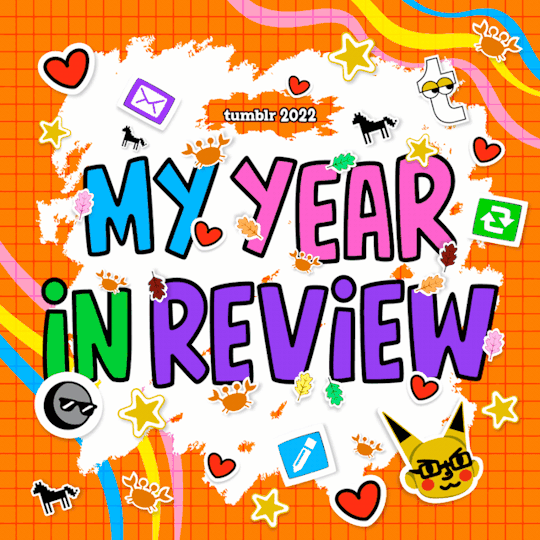
I posted 905 times in 2022
342 posts created (38%)
563 posts reblogged (62%)
Blogs I reblogged the most:
@earlgreytea68
@fleecy-fawkes91
@carbonbased000
@clandestine-rabbit
@poeticallydead
I tagged 587 of my posts in 2022
Only 35% of my posts had no tags
#fall out boy - 252 posts
#bandom - 249 posts
#fob - 248 posts
#peterick - 181 posts
#pete wentz - 35 posts
#writing - 26 posts
#our flag means death - 20 posts
#long post - 17 posts
#sherlock - 16 posts
#personal - 14 posts
Longest Tag: 133 characters
#we were having a conversation about how the creature in frankenstein is described as so revolting that nobody can bear to look at him
My Top Posts in 2022:
#5

I have never really understood what this saying means? What kind of woman is this? Like, if the devil is upset you're awake, is it because you're the kind of woman who's incredibly pious?? If they mean that you're a rebellious woman, wouldn't the devil be happy you're awake? Are we just meant to think that you're a woman who everyone says, "oh, she's such a deeply, profoundly good woman" about? In which case why have this thing about the devil to get that point across? I just feel like if someone said this was the kind of woman I was, I would have no idea how to take it. Is it a compliment or an insult lol
151 notes - Posted November 12, 2022
#4
I Read Bruen So You Wouldn’t Have To
You might not know this about me, but in my spare time, I’m kind-of-sort-of a U.S. lawyer. I have a law degree, at least. So sometimes maybe you want to know how a lawyer would read some of these Supreme Court cases. So I read the recent Second Amendment gun control case called Bruen, so you wouldn’t have to. And trust me, you should be grateful for that, because the majority opinion is a 60-page slog through the esoterica of some random British law from, like, the British Civil War era???? And then some stuff that “the Western Territories” did??? Because this is apparently how we make “law” in this country now.
In theory, the case is about a law -- more than a hundred years old -- under which New York requires people to show a reason why they should be given a license to carry a weapon concealed in public. The question is whether New York is able to make such a law (even though, again, the law has been the books since 1911).
The majority opinion answers this question, as I said, by literally spending 60 pages telling me what Oliver Cromwell thought about gun control. You think maybe I’m exaggerating? I am not. I am very much not. You might not care very much about what Oliver Cromwell thought about gun control as a reason for guiding 21st-century U.S. legislation, and I wouldn’t blame you, so I’m not going to walk you through the 800 years of history that the majority opinion provides in great detail. (Seriously, it starts with the Magna Carta, and frankly I’m surprised we didn’t try to figure out how the very first humans handled “very big stick” and “very heavy stone” control.)
I say that in theory this case is about a New York law, because in actuality what this case is about is part of this term’s concerted effort to establish originalism as the only permissible way to interpret laws in this country. And what’s astonishing is...how absolutely terrible it is. How blatantly it shows that originalism is nothing more than a fancy word for “words mean whatever I say they mean.” Like, it doesn’t even try to hide that. The assertions that the case makes, flat-out, are pretty astonishing.
The holding of the case (meaning: the ultimate conclusion) is that courts must “assess whether modern firearms regulations are consistent with the Second Amendment’s text and historical understanding.” Uh-huh. We cannot regulate guns unless people in the eighteenth century would have been okay with the regulation. And how do we know what people in the eighteenth century were okay with? In theory, this question is supposed to be answered by looking at ~~history. I put that in sarcasm font, because...yeah. Even the majority opinion acknowledges that “historical analysis can sometimes be difficult and nuanced,” but, it insists, it’s “more legitimate” than any other way of deciding what laws the country can establish. Yes, relying on made-up stuff about the Founding Fathers is, the court has concluded, the most legitimate way to pass a law.
This is all an elaborate piece of theater that means absolutely nothing, as the opinion itself literally acknowledges:

To paraphrase: The respondents must prove that the law in question would have been passed by other people in history. To do so, the respondents provide 700 years’ worth of examples. But, the court says, “not all history is created equal.” What a turn of phrase, huh? Indeed, it is not.
Again, the opinion isn’t even shy about how originalism is just a series of moving targets that you will never be able to hit because there’s a foregone conclusion. The respondents give the Court a bunch of stuff on English history. And maybe, you might say, that’s not super-relevant to American law. Except that, in a previous Second Amendment originalism case, the originalists then were all about the English law and the English ancestors blah blah blah. So the respondents come in with all this English law stuff and here the majority opinion wrinkles its nose and says, “We find that ambiguous.”
See the full post
173 notes - Posted July 5, 2022
#3
I have a question that I hope won’t cause offence, because it is genuine and not meant to be leading or shaming or anything like that.
I love, love, love your series “Swan Song”, and partly that’s because I love music and band culture and well-written fic. So I should read your Peterick stuff right? Because it’s different characters, but still music and band culture and well-written fic, and I already know I love your fic and writing style.
My concern is this: although I am of the generation who feels that everyone should write what they like, if you don’t like something, you shouldn’t read it, and there is no justification for forcing one person’s personal moral boundaries on the wider population *in fiction writing* (obvs in terms of real life actions, real people have to be forced to toe a certain moral line. Obviously. Just not in fic.). I am not sure how I feel about RPF. I mean, I feel people should write what they want, that’s not in question. However, I want to read your fic, but I’m not sure how I feel about reading RPF.
I think what I’m asking is, how do you look at the ethics of RPF - of writing real people with real names, lives, connections, internet access - as fictional characters? How do you reassure yourself that you’re definitely writing fiction and not being weird or presumptuous about the real celebs? Again, I want to be clear, I’m asking this because I love your writing and I really want to be convinced by your ethical argument, so that I can read your band fic without feeling ethically itchy and uncomfortable. I know there’s a ton of holier-than-thou shaming, but I genuinely am not trying to do that.
No pressure to answer if you are over this discussion, I would just like to know, if you feel like answering.
Hello! This is not offensive to me and I'm totally happy to answer this. I am old enough to remember endless RPF discourse on LJ, let me tell you.
First let me say -- I'm with you: People should write what they want to write and other people should read what they want to read.
How did I come around to RPF? Tbh, it started when I realized that, well, it's EVERYWHERE. My favorite movie, for instance, is "The Social Network." That is RPF: a fictional construct around the lives of real people. "The Social Network" lost the Oscar to "The King's Speech," which is more RPF: fictional construct around the lives of real people. And it's not like that year was an outlier: Every year, many of the movies nominated for Best Picture Oscars are fictional stories shaped around real people. So, for instance, last year we had "Judas and the Black Messiah," "Mank," "The Trial of the Chicago 7." This year in the running we have "Tick, Tick...Boom!," "King Richard," "Being the Ricardos." If you define RPF as "fiction about real people," then all of these fit. None of these are exactly true, nor are they even trying to be. And they're not only perfectly legal, they are lauded and held up and admired as virtuoso storytelling.
Once I realized exactly *how pervasive* RPF is, the less I felt guilty about the fic edition of it, because I think fic writers are constantly made to feel lesser in all of their art, and this seemed like another version of it to me.
Now there are lots of lines people draw about RPF: Some are more okay with it if the people are dead, so, for instance, "The Gilded Age" is okay. But as the above examples make clear, non-fic RPF doesn't limit itself to dead people. Nor does it de-sexify these people, such that non-fic RPF is chaste. There's certainly sex lurking in "The Crown."
So, I personally decided that if I was going to be okay with non-fic RPF, if I was going to think "The Social Network" was genius, if I was going to watch "The Crown," then I wasn't going to treat fic RPF differently. Again, everyone can make a different choice for themselves! That might not be persuasive at all! But you asked how I came to my decision, and that was how.
I draw a line myself in what I write and in what I'm comfortable reading. I don't write about their RL kids or partners and I don't tend to read about them, either. But I think that's because of the second part of your question: I am not actually writing about either one of them, and I know that. I am writing about them as archetypes of a certain type of character. So the real details of their lives aren't important to me. They're just inspiration. (I assume this is how the people who write non-fic RPF view it as well, incidentally. Like, I assume they don't think they've written the *actual* conversation Prince Charles and Princess Diana had about Camilla. They're just using what they know to write character archetypes. "The Trial of the Chicago 7" ends with this powerful moment and I looked it up and it was completely made-up lol.)
Now, can there be people who blur the line between fiction and reality, and think that what they are writing is real? Yes, but I think that in that case the fic is a symptom and not a cause. I think the majority of people who write and read RPF don't get confused. In fact, much of the time fic RPF is much more deliberately, outrageously fictional than non-fic RPF, which often pretends to be telling some version of the truth. And to me that makes it, in its way, somewhat less potentially offensive than non-fic RPF, in that it is not often touted as being about exposing these people's inner lives.
Writing fiction about real people is actually one of our pervasive ways of telling stories. We've done it forever, and we've praised it forever. "Here are real people who lived, let me tell you about all their drama," said Dante and Shakespeare and Chaucer. (Sorry, my degree was heavily Western-literature-based.) This New Yorker article described Virginia Woolf as "describ[ing] the impulse to imagine the private lives of others as the art of the young—a matter of survival—and of the novelist, who never tires of this work, who sees an old woman crying in a railway car and begins to imagine her inner life."
So anyway. You may never be comfortable with fic RPF, and that is totally okay, not everyone is or has to be. But this was my journey to it.
230 notes - Posted January 28, 2022
#2
There are a whole plethora of reasons why Elon Musk is Not A Nice Person and why I don’t want his takeover of Twitter to be a success (which is sad, because I otherwise like Twitter and miss it terribly), but among them is this phenomenon whereby he fired his employees for not wanting to accept his deranged, abusive, demanding terms of employment...and now people are being encouraged to go work for him FOR FREE because it’s such a “great opportunity” and he’s such a great person to learn from and blah bah blah
No. NO. We cannot have Elon Musk make a success of Twitter by firing paid employees to hire unpaid interns, argh argh argh!!
321 notes - Posted November 22, 2022
My #1 post of 2022
So, a thing I was thinking about FOB8, is I’m pretty sure they don’t have any contractual obligations at this point, right? Like, they finished their contract with Island when Mania came out and the last we heard from them, they were happy not to have a label and they were just going to go it on their own. And I haven’t heard anything different, and the length of time it took them to come out with this album leads me to believe that yeah, they don’t have any kind of label breathing down their neck.
So, for one thing, I’m so deeply curious and excited for this album that presumably is exactly what they want it to be because they didn’t have any other cooks in the kitchen but them and who they specifically invited.
But, for another thing, that means that their crack publicity team of, like, Pete Wentz, his teenage son, and a squirrel are running this album’s promotion and I can’t stop laughing over what a wild ride I expect this to be. like.
Pete Wentz circa 2018 in many, many, MANY interviews: We are very excited not to have any record label contracts anymore! We’re going to be free and clear to do every crazy thing we want to do!!!!! The sky is the limit!!1!!!1!!!! UNLEASHED FALL OUT BOY TIME!!!!!11!!!!!!
Pete Wentz in 2022: Let’s take out a full-page ad in the Chicago Tribune.
542 notes - Posted November 30, 2022
Get your Tumblr 2022 Year in Review →
12 notes
·
View notes
Text
Pope Benedict died this morning.
We are generally very poor at recognizing holiness in our midst.
Pope Benedict XVI died this morning. He was, I think, a holy man, even if many people disagree.
Despite being the gentlest of souls, who loved cats, Fanta, and classical piano, he was sometimes viewed by the world as a harsh and terrifying dogmatic Inquisitor.
Despite doing more than anyone in the Vatican - including Pope St. John Paul II - to end the child abuse crisis, the world tried to lay it at his doorstep.
He was an open-minded and warm scholar with magnificent erudition and a profound intellect. Despite being a young man, he was a voice in the Vatican Council who led the revolt against the hidebound theology of the manuals. He was often depicted as a close-minded conservative of the worst sort, who refused to allow any thought after 1500 AD room to play, which was profoundly untrue.
Despite his family being vehemently opposed to the Nazis, and his risking his life to go AWOL from the Nazi army when forcibly conscripted into it, despite his strong writings against corrupt government, he was still regularly accused of being a Nazi.
It is astonishing how very little the popular opinion has to do with the man. Much of this was propagated by his enemies in the Vatican hierarchy who feared his total devotion and incisive and blinding intellect. If you ever want to know why calumny can be a mortal sin, look to Benedict XVI.
I don't think the streets will fill at Benedict's death. I don't think there will be cries of "Santo subito!" I don't think there will be twenty-four hour news coverage, or a huge state funeral, or a gathering of heads of state.
But I know the skies will be filled with angels. I know that Pope St. John Paul II himself will cry "Santo subito!" I know the Doctors of the Church will welcome him into their number. And I know that Jesus will greet him, along with all the saints, and welcome him home.
We're not great at recognizing holiness. But from my Christian heart I'll give the world a hint: a very holy man has died and the world will be the poorer for it.
If you want to know why he had lifelong enemies in the hierarchy, here is an interview from 1969 when he was still just a priest, though already a noted intellect and theologian:
In a 1969 German radio broadcast, Father Joseph Ratzinger offered his thoughtfully considered answer to the question, “What will become of the Church in the future?” Here are his concluding remarks,
“The future of the Church can and will issue from those whose roots are deep and who live from the pure fullness of their faith. It will not issue from those who accommodate themselves merely to the passing moment or from those who merely criticize others and assume that they themselves are infallible measuring rods; nor will it issue from those who take the easier road, who sidestep the passion of faith, declaring false and obsolete, tyrannous and legalistic, all that makes demands upon men, that hurts them and compels them to sacrifice themselves. To put this more positively: The future of the Church, once again as always, will be reshaped by saints, by men, that is, whose minds probe deeper than the slogans of the day, who see more than others see, because their lives embrace a wider reality.
Unselfishness, which makes men free, is attained only through the patience of small daily acts of self-denial. By this daily passion, which alone reveals to a man in how many ways he is enslaved by his own ego, by this daily passion and by it alone, a man’s eyes are slowly opened. He sees only to the extent that he has lived and suffered. If today we are scarcely able any longer to become aware of God, that is because we find it so easy to evade ourselves, to flee from the depths of our being by means of the narcotic of some pleasure or other. Thus our own interior depths remain closed to us. If it is true that a man can see only with his heart, then how blind we are!
How does all this affect the problem we are examining? It means that the big talk of those who prophesy a Church without God and without faith is all empty chatter. We have no need of a Church that celebrates the cult of action in political prayers. It is utterly superfluous. Therefore, it will destroy itself. What will remain is the Church of Jesus Christ, the Church that believes in the God who has become man and promises us life beyond death. The kind of priest who is no more than a social worker can be replaced by the psychotherapist and other specialists; but the priest who is no specialist, who does not stand on the [sidelines], watching the game, giving official advice, but in the name of God places himself at the disposal of man, who is beside them in their sorrows, in their joys, in their hope and in their fear, such a priest will certainly be needed in the future.
Let us go a step farther. From the crisis of today the Church of tomorrow will emerge — a Church that has lost much. She will become small and will have to start afresh more or less from the beginning. She will no longer be able to inhabit many of the edifices she built in prosperity. As the number of her adherents diminishes, so it will lose many of her social privileges. In contrast to an earlier age, it will be seen much more as a voluntary society, entered only by free decision. As a small society, it will make much bigger demands on the initiative of her individual members. Undoubtedly it will discover new forms of ministry and will ordain to the priesthood approved Christians who pursue some profession. In many smaller congregations or in self-contained social groups, pastoral care will normally be provided in this fashion. Along-side this, the full-time ministry of the priesthood will be indispensable as formerly. But in all of the changes at which one might guess, the Church will find her essence afresh and with full conviction in that which was always at her center: faith in the triune God, in Jesus Christ, the Son of God made man, in the presence of the Spirit until the end of the world. In faith and prayer she will again recognize the sacraments as the worship of God and not as a subject for liturgical scholarship.
The Church will be a more spiritual Church, not presuming upon a political mandate, flirting as little with the Left as with the Right. It will be hard going for the Church, for the process of crystallization and clarification will cost her much valuable energy. It will make her poor and cause her to become the Church of the meek. The process will be all the more arduous, for sectarian narrow-mindedness as well as pompous self-will will have to be shed. One may predict that all of this will take time. The process will be long and wearisome as was the road from the false progressivism on the eve of the French Revolution — when a bishop might be thought smart if he made fun of dogmas and even insinuated that the existence of God was by no means certain — to the renewal of the nineteenth century. But when the trial of this sifting is past, a great power will flow from a more spiritualized and simplified Church. Men in a totally planned world will find themselves unspeakably lonely. If they have completely lost sight of God, they will feel the whole horror of their poverty. Then they will discover the little flock of believers as something wholly new. They will discover it as a hope that is meant for them, an answer for which they have always been searching in secret.
And so it seems certain to me that the Church is facing very hard times. The real crisis has scarcely begun. We will have to count on terrific upheavals. But I am equally certain about what will remain at the end: not the Church of the political cult, which is dead already, but the Church of faith. It may well no longer be the dominant social power to the extent that she was until recently; but it will enjoy a fresh blossoming and be seen as man’s home, where he will find life and hope beyond death.
The Catholic Church will survive in spite of men and women, not necessarily because of them. And yet, we still have our part to do. We must pray for and cultivate unselfishness, self-denial, faithfulness, Sacramental devotion and a life centered on Christ.”
As he neared death, he said, “Quite soon, I shall find myself before the final judge of my life. Even though, as I look back on my long life, I can have great reason for fear and trembling, I am nonetheless of good cheer, for I trust firmly that the Lord is not only the just judge, but also the friend and brother who himself has already suffered for my shortcomings, and is thus also my advocate, my ‘Paraclete’. In light of the hour of judgement, the grace of being a Christian becomes all the more clear to me. It grants me knowledge, and indeed friendship, with the judge of my life, and thus allows me to pass confidently through the dark door of death. In this regard, I am constantly reminded of what John tells us at the beginning of the Apocalypse: he sees the Son of Man in all his grandeur and falls at his feet as though dead. Yet He, placing his right hand on him, says to him: ‘Do not be afraid! It is I…’”
O God, by your Holy Spirit you give to some the word of wisdom, to others the word of knowledge, and to others the word of faith: We praise your Name for the gifts of grace manifested in your servant Pope Benedict, and we pray that your Church may never be destitute of such gifts; through Jesus Christ our Lord, who with you and the Holy Spirit lives and reigns, one God, forever and ever. Amen.
His dying words were, “Jesus, I love you.”
Depart, O Christian soul, out of this world;
In the Name of God the Father Almighty who created you;In the Name of Jesus Christ who redeemed you; In the Name of the Holy Spirit who sanctifies you.May your rest be this day in peace, and your dwelling place in the Paradise of God.
Into your hands, O merciful Savior, we commend your servant Pope Benedict. Acknowledge, we humbly beseech you, a sheep of your own fold, a lamb of your own flock, a sinner of your own redeeming. Receive him into the arms of your mercy, into the blessed rest of everlasting peace, and into the glorious company of the saints in light. Amen.
May his soul and the souls of all the faithful departed, through the mercy of God, rest in peace.
Amen.

3 notes
·
View notes
Text
I’m sorry to word dump on your gif post op, but this scene just Does Something insane to me!!
I know that I’m late to the party, but I finally got around to watching Hannibal back in June after all of these years. It has lurked around in my brain this whole time, and I've always been curious about Hannigram. I kinda hate dark crime shows tbh, and as a vegan I was immensely revolted by most things in it LMFAO, but I stuck it out to see how the relationship between Hannibal and Will developed and why people were so into them back when it was airing—and still are!
I truly was not prepared for anything that happened between them. I never could have expected how deep and complex their relationship became, and I don't think I could even properly articulate how they made me feel. Their relationship was fucked up and twisted and messy and heartrending, yet somehow so immensely freeing. They found themselves in each other. They both changed the other, let each other see who they are, and they understood one another like nobody else had before. It transcended love into something completely other, something dark and all-consuming, to the point that they joined together as one. They were the worst thing to happen to each other, but in the best, most awful, beautiful way.
This final scene of the series truly was one of the most profoundly beautiful endings of a show that I have ever seen. I haven’t been able to stop thinking about it. How peaceful they are in this moment, when they finally let go and fall into one another. Will finally giving into his becoming, into himself and into Hannibal, and Hannibal finally getting what he so desperately desires. And by god is it incredibly homosexually charged. Like Jesus Christ, it would've been less gay to actually kiss. I think I passed away from the sheer yearning in their gazes. Will looks like he’s having an out of body religious experience while covered in blood, head cradled on Hannibal's chest and in his arms at last. Not to mention Hannibal himself, who seems as if he’s come home; he can finally let down his guard completely and rest.
In conclusion, the show was a very gay and horrifying rollercoaster of a love story. Very glad I consumed it.


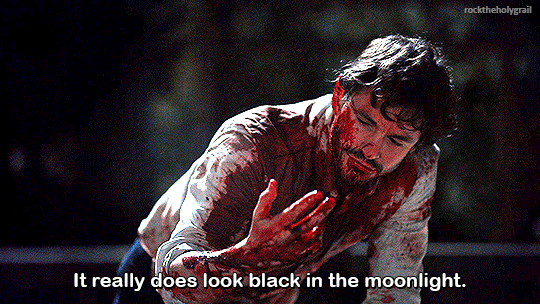

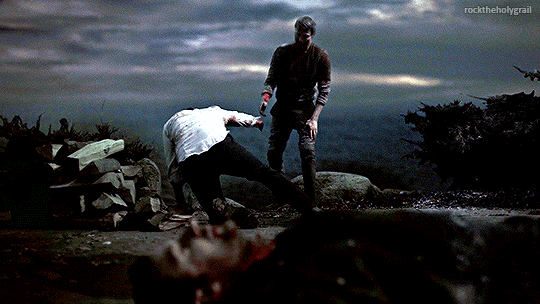
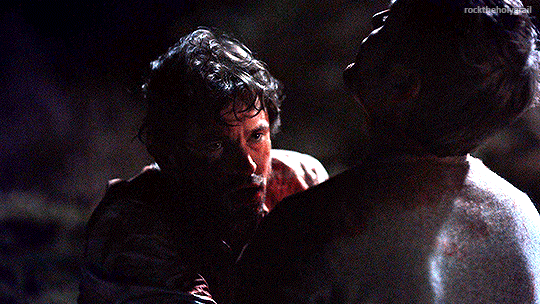
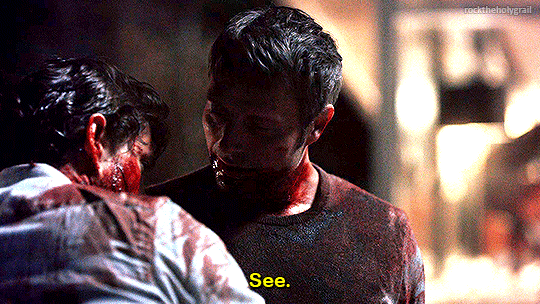
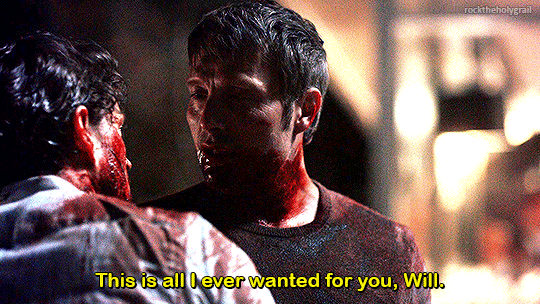


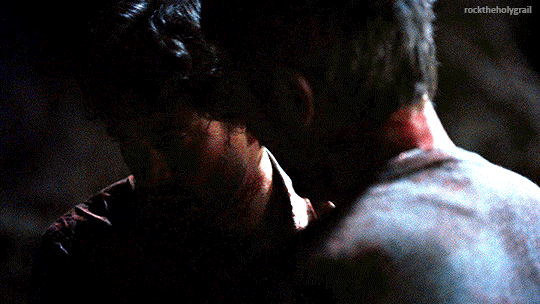

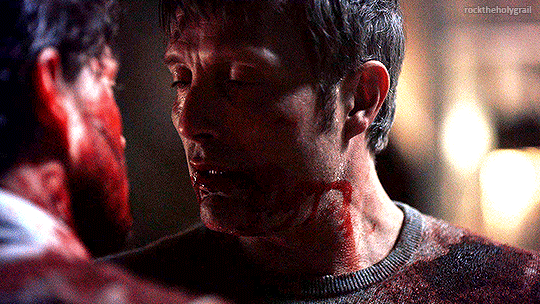
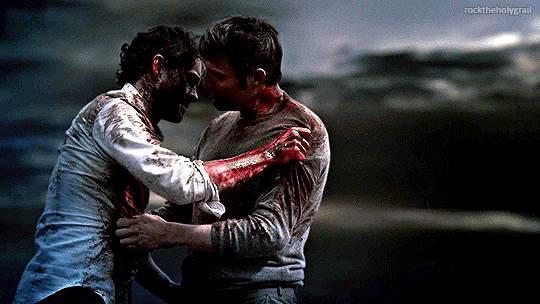


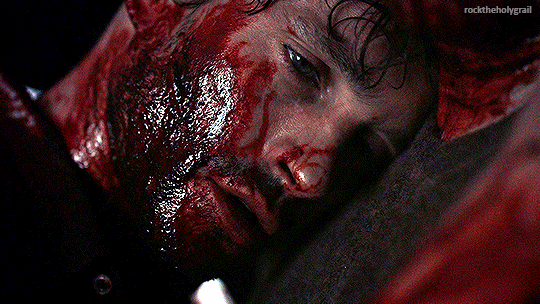
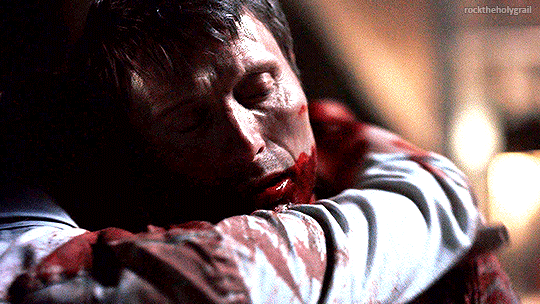
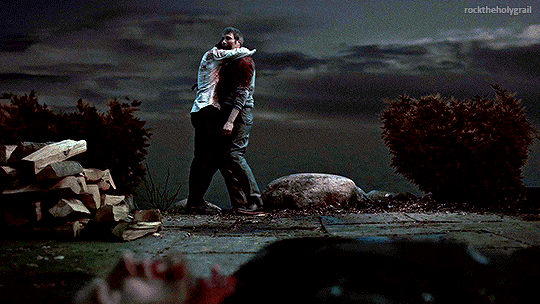

Hannibal 3x13 - “The Wrath of the Lamb”
Happy TWOTL Anniversary! (August 29, 2015)
#insane show for insane people#but fr tho#this scene with the song and everything literally shredded me alive and launched my remains into outer space where i met alien jesus#the homosexual longing revived me#i am now obsessed with hannigram#i will not apologize for the person i have become#i love your hannibal gifs so much btw op 🙏#hannibal#gifs#fave#meta#i guess?
6K notes
·
View notes
Text
Most Dreadful Termites in Rochester, NY
Termites are perhaps the most widely recognized pest tracked down in the properties of Rochester, NY. Regardless of what metropolitan legend says, few out of every odd termite can attack or obliterate your property. In any case, it is smarter to be protected than sorry. When these evil bugs enter your home, they can make unsalvageable harm to your property and different possessions. They love to stow away, create, and layout settlements in wooden furnishings and other clammy areas.
Tending to termite pervasions and related issues at the earliest is the best choice you can make to control the development of this dreadful pest. You can deal with the issue in the most proficient way just when you have total data about the sort of termite you are managing. On the off chance that you can't recognize various species all alone, then search for proficient pest and termite control services in Rochester, NY. Such specialist co-ops are profoundly prepared, but on the other hand, are outfitted with the right devices and nuisance control programs.
Get to know Various Termite Species
Can't help thinking about how to recognize various sorts of termites? These little white pests can make huge harm to your property as they assault and annihilate the whole wood outline. Specific organizations offering Rochester Pest control and termite control services in NY can assist you with disposing of these revolting and hindering bugs. Being a private land owner, you ought to find out about the fundamental sorts of termites that are commonly tracked down in NY.
Subterranean Termites
Regularly found in NY, these termites exist in huge colonies. However they live just about fifty feet beneath the ground level, underground termites feel free to your home to look for cellulose. They like to benefit from wood things and pieces present inside your home. The presence of these termites in your home basically demonstrates that you might need to manage basic bug issues and the subsequent harm.
Underground termites like to live in clammy, muggy, and dull regions. They like to settle in private properties with substantial groundwork. Since these termites are little in size, they can enter your home without any problem. A little break or opening is sufficient to permit these termites to attack your living zone.
Drywood Termites
You will be unable to notice and recognize these termites effectively as they like to remain inside the wood pieces they swarm. However these termites are not usually found in NY, they can create periodic issues for mortgage holders. Besides, they can turn into an explanation of incredible primary harm, while possibly not ideally recognized and treated.
Desert Termites
This is a unique kind of termite that doesn't regularly go after private properties. However desert termites cause no serious primary harm, so you ought to keep a careful eye out for their improvement in your home. These termites generally get by on plants and wood things tracked down by external homes. They are known to make mud tubes on wood pieces and dead vegetation after weighty downpours.
While living in Rochester, NY, you shouldn't mess with termite pervasions. Draw in proficient Rochester pest control services in NY like "Town and Country Solutions" before these small nuisances obliterate the whole construction of your private property.
#syracuse pest control#pest control rochester#termite control rochester#termite control syracuse#exterminators rochester ny
0 notes